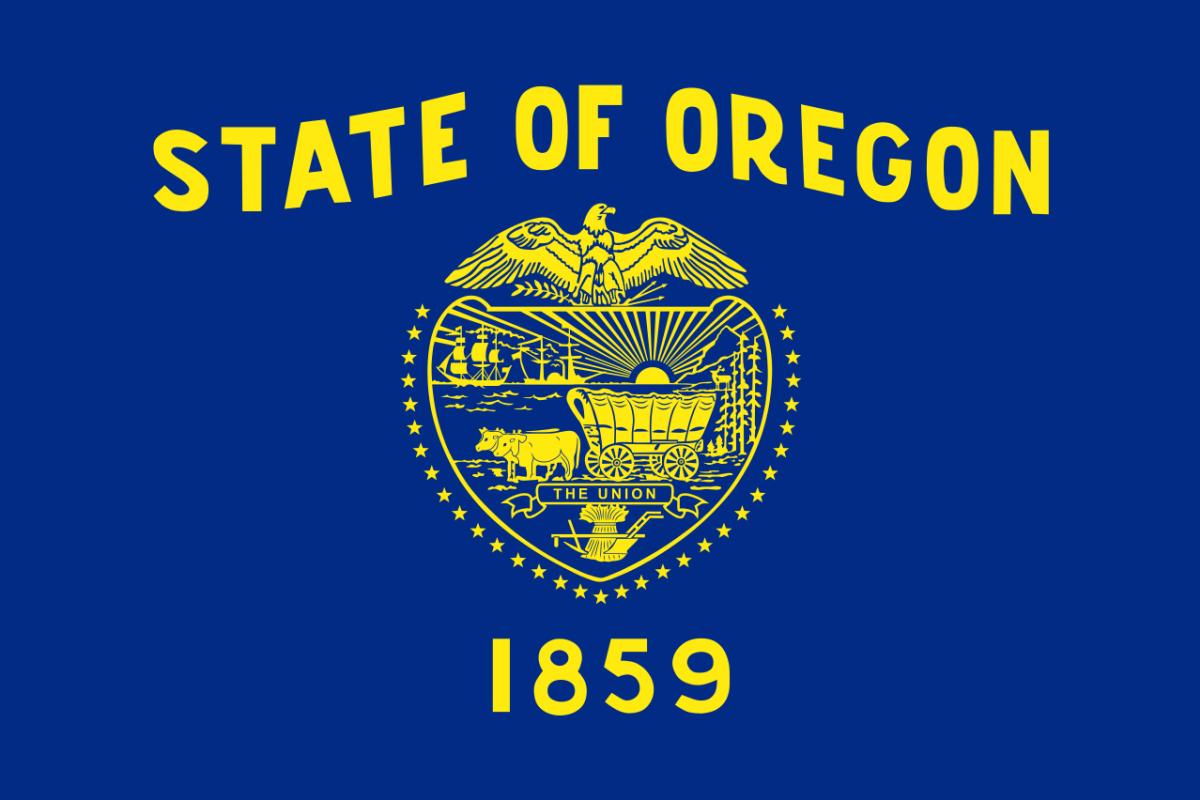Oregon Divorce Laws

It is tempting to think that divorce is a common practice in the State of Oregon, but the reality is a bit more nuanced. Data shows that over the past three decades, divorce rates have been steadily going down overall. While there were 5.5 divorces for every 1,000 Oregonians in 1990, there were only 2.7 for every 1,000 in 2021. This correlates directly with the continuous decline in marriage rates, from 8.9 marriages for every 1,000 residents in 1990 to 5.7 marriages for every 1,000 in 2021.
What is apparent is that fewer people are getting married and splitting up in the state. Still, readers who are considering breaking the knot should not be ashamed to do so since a fruitless union should never be willingly put up with. This article should be a useful resource for those who seek freedom from unsuccessful unions.
Divorce vs. Annulment vs. Legal Separation in Oregon
Readers often think of divorce, annulment, and legal separation as being the same legal remedy in Oregon because the result seems similar: the spouses get to be apart. But there is a world of difference between the legal implications of the three. A divorce refers to the legal termination of an existing marriage. It is formally referred to as a dissolution of marriage and is finalized by a judge who issues a divorce decree.
An annulment also ends the relationship between the spouses, but the legal foundation is very different: the marriage legally never existed because it was void or voidable because of a defect in the vital prerequisites for a valid marriage. The common defects are in the contracting parties’ free or informed consent, being underage, or being in a current marriage, making any further unions bigamous.
Legal separation differs from divorce and annulment in that the marriage is not dissolved by the court. It merely allows the couple to live apart, and neither can remarry. It also involves the separation of property and the distribution of parenting rights and duties, but the couple remains wedded.
Is Oregon a No-Fault State When It Comes to Divorce?
While one may reckon that divorces in Oregon occur because of domestic strife or wrongdoing, this is not necessary. The state is a no-fault jurisdiction. The only reason needed to dissolve a marital union is that the partners have irreconcilable differences, leading to the irretrievable breakdown of a marriage. There is no need for the couple to air out their dirty laundry in front of the judge to separate. A single spouse may also go to court alone without the consent or participation of the other.
How to File for Divorce in Oregon
Filing a divorce in Oregon varies in complexity depending on whether it is a contested or uncontested process. But the general steps are similar, from the acquisition and filing of papers to the service of summons and trial. The key difference is whether the judge has to resolve contentious issues or not. This guide will not replace the hands-on assistance of a lawyer but will provide a generalized overview of the process.
Step One: Acquire the Forms
Before doing anything else, the party seeking a divorce has to acquire the necessary papers that will be submitted to the court and to the other spouse. These documents are, according to the Oregon Courts website:
Petition for Dissolution.
Record of Dissolution of Marriage.
Certificate re: Pending Child Support Proceedings and/or Existing Child Support Orders/Judgments (disregard if childless).
UTCR 2.130 Confidential Information Form (one per party).
Summons (attach an Automatic Statutory Restraining Order if needed).
Notice of Confidential Information Form Filing.
These forms are downloadable from the website of the Oregon courts, and there is no need to personally go to court to acquire any of them.
Step Two: Seek Legal Assistance and File Temporary Orders
It is prudent at this stage for the petitioner to retain competent and trustworthy counsel who will advocate for their cause until the conclusion of the process. A lawyer will be key in preparing the forms listed above and making sure that there are no gaps in the factual and legal assertions that must be made. An attorney may also apply for temporary orders should the petitioner need immediate remedy due to domestic violence, the diminution of assets, or other emergencies.
Step Three: File the Petition
The petition has to be filed with the local or circuit court that covers the county where the petitioner lives. Filing the petition carries with it the submission of court fees. The court will not take the petition seriously until it gets paid.
Step Four: Serve the Other Party
Service of the other party in Oregon is a key component of due process because it alerts the defendant-spouse to the existence of the case and gives the latter a chance to put forth a defense. The service has to be done by an adult, 18 years or older, who will personally hand over the papers to the respondent. The server will usually be the petitioner’s lawyer, who will complete a certificate of service form, which will prove to the court that the service was accomplished. If the respondent cannot be found, service will be performed through publication in a newspaper or posting at the local courthouse.
Step Five: Wait For a Response
The nature of the response will determine if the case will be contested or uncontested. Assuming that the other spouse agrees to the allegations in the petition for dissolution, no trial is needed, and the process is uncontested. If the other party fails to reply, they will be in default, and a judgment of default in favor of the petitioner will be entered. Otherwise, there will be a contested and lengthy trial. More details as to the time span will be given later in this article.
Step Six: Go to Trial or Prepare a Stipulated Judgment
If the spouses agree on every point raised in the petition, the uncontested divorce will lead to the drafting of a stipulated judgment by the couple with the aid of counsel. This states the nitty-gritty details, like custody and property division. The documents will be signed by the judge, who will finalize everything.
If there are contentious issues, the couple will undergo a trial and have to settle contested matters, as stated above. The parties generally need to attend personally.
How Property is Divided in an Oregon Divorce
Under the laws of Oregon, marital property will be divided equitably, not necessarily equally, between the divorcees. To determine what is equitable and fair, the judiciary will use a rebuttable presumption that each spouse contributed equally to the cost of acquiring marital properties. This presumption stands regardless of whether the assets are, in fact, jointly or separately held. To defeat the presumption, lawyers may present evidence that the properties were acquired using separate funds and thus should belong exclusively to a single person.
The exception is when the belongings were acquired as gifts or inheritance and were held as such for a continuous period since acquisition. This implies that the moment the inherited or gifted properties are used for the couple’s common use, they may form part of the marital pool.
Spousal support is then determined if it is apparent that an equitable division of assets will leave one spouse unable to enjoy the same quality of life, there was before the divorce. The courts also look into factors like the number of children when determining spousal support obligations.
Oregon Divorce FAQs
After hurdling the divorce process in Oregon, there remain some loose ends to take care of, like the length of time involved and the cost of the entire process. This part of the document will explore these issues.
Legal Resources for Getting a Divorce in Oregon
The following are useful resources that residents of Oregon may use to obtain legal assistance. The focus is on those who lack the financial capacity to pay a private lawyer yet still need to split up from their spouses.
Oregon State Bar
The Oregon State Bar is the professional fellowship of lawyers licensed to practice law in the state. The group has a lawyer referral service to link needy clients with lawyers specializing in divorce. It also has a modest means program where eligible individuals are granted reduced hourly rates.
OregonLawHelp.Org
OregonLawHelp is an organization that aids Oregon residents who need low-cost assistance for family law proceedings like divorce. The office also provides abuse protection measures against stalkers and sexually deviant spouses whose actions pose a danger to their partners.
Legal Aid Services of Oregon
Legal Aid Services of Oregon tackles family law issues in its local offices, including those that have a domestic violence component. It also takes on matters concerning civil rights and elder abuse and gives pro-bono opportunities to lawyers who want to give back to the community.
Expertise.com StaffAuthor
Step into the world of Expertise.com, your go-to hub for credible insights. We don't take accuracy lightly around here. Our squad of expert reviewers, each a maestro in their field, has given the green light to every single article you'll find. From rigorous fact-checking to meticulous evaluations of service providers, we've got it all covered. So feel free to dive in and explore. The information you'll uncover has been stamped with the seal of approval by our top-notch experts.




